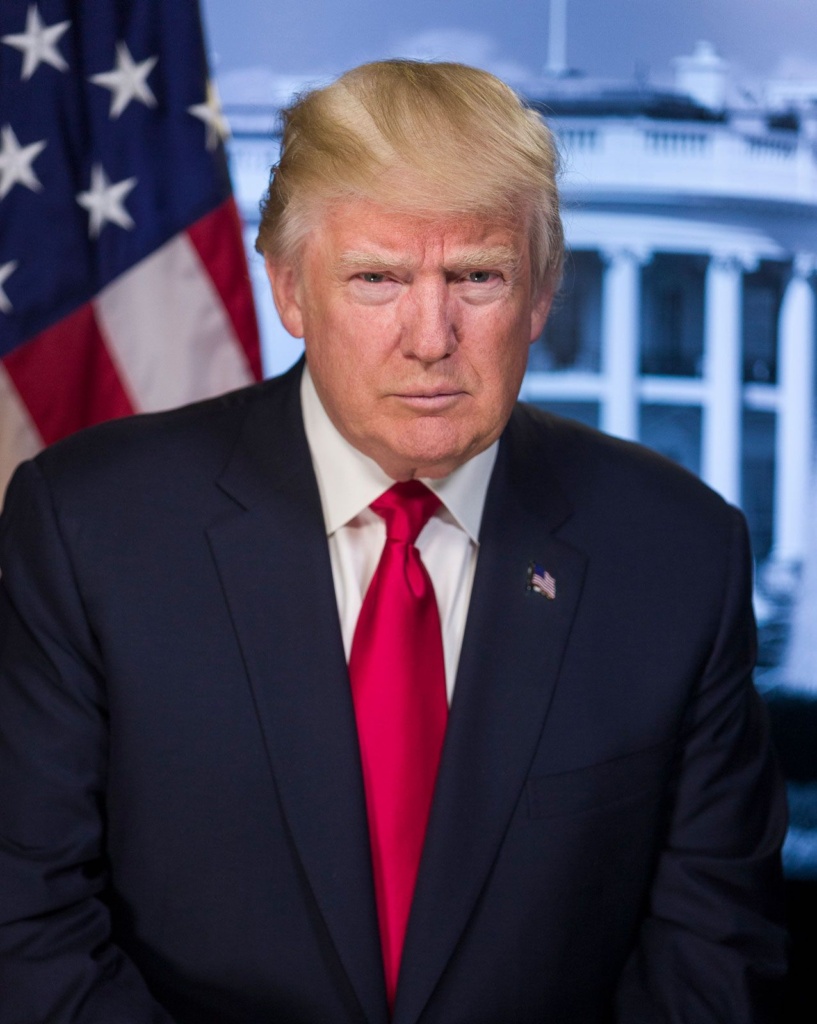
By Ojo Emmanuel Ademola – The tariffs imposed by the Trump administration have profoundly impacted African economies, disrupting trade relations and damaging vital sectors such as agriculture and manufacturing. These challenges must be seen as opportunities for African nations to reevaluate and strengthen their economic strategies. By prioritising intra-African trade, diversifying export markets, and emphasising value addition, Africa can decisively turn these obstacles into powerful drivers of sustainable development.
This discussion will explore the substantial effects of Trump’s tariffs on Africa and outline strategic approaches to mitigate these impacts while promoting long-term growth. For example, South Africa faces a daunting 30% tariff, jeopardising its vehicle exports and agricultural products. It is crucial to take action now.
These tariffs pose a significant threat to the African Union’s Agenda 2063, which aligns seamlessly with the UN’s 2030 Agenda for Sustainable Development. Both initiatives are centred on the urgent goals of eradicating poverty, driving sustainable economic growth, and enhancing infrastructure and industrialisation. The rising trade barriers are not just an inconvenience; they are a direct obstacle to progress, undermining export revenues and restricting access to vital international markets. We must address this issue urgently, as it jeopardises our collective future.
Africa is poised to adopt several effective strategies to counter the impacts of tariffs imposed by the Trump administration:
1. Enhancing Intra-African Trade: The African Continental Free Trade Area (AfCFTA) stands as a crucial solution. By significantly increasing trade within the continent, African countries can decisively reduce dependency on external markets and fortify regional economies.
2. Diversifying Export Markets: It is essential for African nations to actively explore new trade partnerships beyond the United States, including those with China, the European Union, and other emerging markets. This diversification will effectively cushion the economic impact of tariffs and enhance resilience.
3. Adding Value to Raw Materials: African countries must prioritize processing and manufacturing within the continent instead of merely exporting raw materials. This strategy will create jobs, generate more tremendous economic benefits, and diminish vulnerability to external trade policies.
4. Bilateral Negotiations: Direct negotiations with the U.S. to secure tariff reductions or exemptions for specific products can and should be pursued to achieve favourable outcomes.
5. Addressing Non-Tariff Barriers: By improving infrastructure, easing restrictive visa policies, and addressing logistical challenges, Africa can facilitate more seamless intra-African trade.
Through the implementation of these robust strategies, Africa can build a resilient and self-sufficient economic framework that strengthens its position on the global stage.
Intriguingly, there are several partnerships that African nations could effectively leverage for growth and development, including the following:
1. MTN Group and Huawei: This partnership focuses on advancing 5G technology across Africa. By deploying over 1,000 5G base stations, they aim to enhance connectivity and drive digital transformation across the continent.
2. Olam Group and the African Development Bank (AfDB): This collaboration seeks to boost agricultural productivity and sustainability. Together, they have developed 500,000 hectares of farmland and introduced innovative farming techniques, resulting in a 20% increase in crop yields.
3. TotalEnergies and the Africa50 Fund: This strategic alliance has led to the development of large-scale renewable energy projects, providing sustainable power to over 2 million households.
4. African Continental Free Trade Area (AfCFTA): Launched in 2021, the AfCFTA aims to create a unified market for 1.3 billion people by reducing tariffs and streamlining regulations, significantly enhancing intra-African trade.
These partnerships highlight the potential for economic growth and development through strategic alliances and trade agreements.
Trump’s tariffs may introduce challenges but also open up valuable opportunities for African nations to strengthen their economies and enhance sustainability efforts. Here’s how African countries can capitalise on these opportunities:
1. Boosting Intra-African Trade: Tariffs will drive African countries to enhance trade within the continent. The African Continental Free Trade Area (AfCFTA) is set to create a single market, drastically reducing dependency on external markets and strengthening economic resilience.
2. Diversifying Trade Partners: African nations must actively seek and deepen trade relationships with other global partners such as the European Union, China, and emerging markets. This diversification is essential to mitigate the impact of U.S. tariffs and unlock new growth avenues.
3. Value Addition and Industrialization: By prioritising adding value to raw materials and promoting industrialization, African countries will maximize their economic gains. This strategy will create jobs, bolster local industries, and reduce vulnerability to external trade policies.
4. Strengthening Regional Value Chains: Developing robust regional value chains will enable African countries to leverage their collective strengths effectively. This approach will enhance competitiveness and ensure that the continent reaps greater benefits from its resources.
5. Policy Reforms and Infrastructure Development: Strategic investments in infrastructure and the implementation of policy reforms to reduce non-tariff barriers are critical. These actions will facilitate smoother trade, attract foreign investment, and support sustainable development goals.
6. Leveraging Bilateral Negotiations: Engaging directly with the U.S. to negotiate tariff reductions or exemptions for specific products is a strategic move that can provide essential relief and maintain critical trade flows.
By adopting these decisive strategies, African nations can turn the challenges presented by tariffs into powerful opportunities for economic development and sustainability.
Here are critical examples demonstrating how tariffs have significantly impacted African economies:
1. South Africa’s Automotive Industry: Tariffs have disrupted global supply chains, directly harming South Africa’s automotive sector. The drop in demand for vehicle components and inputs has resulted in noticeable production slowdowns.
2. Kenya’s Horticulture Sector: Tariffs have created substantial challenges for Kenya’s flower and vegetable exports, severely diminishing their competitiveness in the U.S. market.
3. Nigeria’s Petroleum Exports: Fluctuations in global oil prices driven by tariffs have led to a sharp decline in Nigeria’s revenue from petroleum exports. This instability has resulted in economic turbulence and a significant reduction in foreign investment.
4. Lesotho’s Apparel Industry: The impact of tariffs on Lesotho’s textile and apparel exports has been catastrophic. Previously supported by the African Growth and Opportunity Act (AGOA), these sectors are now facing reduced export volumes and serious economic setbacks.
5. Madagascar’s Vanilla Exports: Madagascar, a leading exporter of vanilla, has seen its products lose appeal in the U.S. market due to increased tariffs. This decline is directly affecting local farmers and undermining the economy.
These examples unequivocally illustrate the far-reaching effects of tariffs on various sectors across Africa. It is imperative that African nations respond to these challenges with strategic initiatives to mitigate the negative impacts and build robust economic resilience.
The tariffs imposed by the Trump administration have markedly impacted Nigeria, directly hindering Africa’s technological potential. Here we are:
1. Economic Strain: Nigeria is currently facing a 14% tariff on its exports to the U.S., including crude oil, gas, and agricultural products. This situation has resulted in reduced export revenues, directly affecting the country’s ability to invest in technological advancements and infrastructure development.
2. Disruption of Trade Relations: The tariffs have strained Nigeria’s trade relations with the U.S., which has the potential to disrupt the importation of essential goods such as pharmaceuticals and agricultural products. This limitation can hinder technological progress by restricting access to critical resources and equipment.
3. Impact on Foreign Investment: The increased tariffs have created uncertainty in the business environment, prompting foreign investors to reconsider their investments in Nigeria. This uncertainty poses a direct challenge to sectors like technology and manufacturing, where foreign capital is essential for growth and innovation.
4. Challenges to Industrialization: These tariffs have obstructed Nigeria’s efforts to industrialize and add value to its raw materials. The heightened costs of importing the necessary technology and machinery for industrialization are likely to slow progress.
5. Potential for Technological Collaboration: However, Nigeria can turn these challenges into opportunities by actively seeking new trade partnerships and collaborations. Engaging with countries that offer technological expertise and investment will help mitigate the impact of U.S. tariffs and strengthen Nigeria’s position.
Nigeria will enhance its technological capabilities and bolster its economic resilience by decisively addressing these challenges. The future is promising, and through focused initiatives, Nigeria will unlock its full potential on the global stage.
In conclusion, the tariffs imposed by the Trump administration have undeniably created economic challenges for African nations, but they also present a critical opportunity for transformation. Africa must seize this moment to fundamentally reimagine and strengthen its financial landscape. By fully committing to initiatives like the African Continental Free Trade Area (AfCFTA), diversifying trade partnerships, and prioritizing value addition and industrialization, the continent can establish a robust and self-sufficient economy. These strategies are essential not only for addressing the immediate impacts of tariffs but also for advancing Africa Union Agenda 2063 goals of sustainable development and poverty eradication. With decisive action and strategic collaboration, African nations will transform these challenges into powerful stepping stones toward a prosperous and sustainable future.









